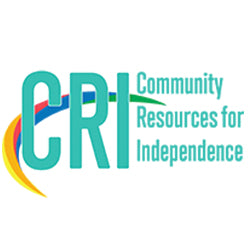Life as an adult is demanding. We are expected to balance our time between our work, family and ourselves. It’s hard to get everything done within the day, so we often stay up late to finish our chores.
Do we really know how crucial a good night’s sleep is? Did you know that sleeping greatly affects our mental and physical state?
If you want to understand how sleep affects your whole being, keep on reading!
Importance of getting enough and good sleep
Sleeping well at night is vital. You might think that your body is just resting at night, but our internal organs are working hard and certain body processes are happening throughout the night.
Dr. Michael Twery, a sleep expert at National Institute of Health states the following: "Sleep impacts many things, like our growth and stress hormones, our immune system, appetite during the day, breathing, blood pressure, and cardiovascular health."
How does sleeping affect our mental and physical state?
Sleep is a necessity of life. Similar to food and water, it feeds your mental and physical health.
Sleep helps our brain to function properly. It clears your mind and prepares you to absorb new information. You tend to make better decisions, be attentive and get creative.
Getting enough sleep also gives us:
- Stronger Immune System
Sleep provides essential support to the immune system. Getting good quality sleep helps maintain a well-balanced immune defense. (Sleep Foundation, 2020)
- Quick reflexes
Good sleep can improve your concentration and makes doing any activities (Sleep Foundation, 2020)
- Improved mood and energy
Sleep and mood are closely connected. Inadequate sleep causes stress and irritability while healthy sleep enhances your mood and energy. (Triantafillou et al., 2019)
Sleep deprivation is not getting the right amount of the needed sleep. It has shown to affect not only your mental capacity, but also your physical well-being. It can put you at risk of serious medical conditions.
- Diabetes
It has been known that lack of sleep affects the body to regulate the blood sugar which increases the risk of getting diabetes. (Spiegel et al., 2009)
- Mental Health Disorders
It has been proven that our mental health is greatly affected by sleep. It can trigger anxiety, depression and bipolar disorder. (Scott et al., 2017)
- Cardiovascular disease
Studies found evidence that sleep deficiencies can cause cardiovascular diseases. (Grandner et al., 2017)
- Obesity
Research shows that people tend to consume more calories and carbohydrates when they don’t get enough sleep which eventually results in obesity or maintaining a healthy weight. (Greer et al., 2013)
How much sleep do we need in a day?
Depending on our age, our sleeping requirement changes.
The National Sleep Foundation breaks down the recommended sleeping hours into nine age groups.
|
Age Range |
Recommended Hours of Sleep |
|
|
Newborn |
0-3 months old |
14-17 hours |
|
Infant |
4-11 months old |
12-15 hours |
|
Toddler |
1-2 years old |
11-14 hours |
|
Preschool |
3-5 years old |
10-13 hours |
|
School-age |
6-13 years old |
9-11 hours |
|
Teen |
14-17 years old |
8-10 hours |
|
Young Adult |
18-25 years old |
7-9 hours |
|
Adult |
26-64 years old |
7-9 hours |
|
Senior |
65 or more years old |
7-8 hours |
They have taken into consideration the different lifestyle, health, and unique circumstances that every individual has and understand that for some, the recommendation is 1-2 hours less than stated above.
In addition to the recommended sleeping hours, the National Sleep Foundation has provided questions to answer so you can determine how much sleep you need:
- Are you productive, healthy, and happy with seven hours of sleep? Or have you noticed that you require more hours of sleep to get into high gear?
- Do you have coexisting health issues? Are you at higher risk for any disease?
- Do you have a high level of daily energy expenditure? Do you frequently play sports or work in a labor-intensive job?
- Do your daily activities require alertness to do them safely? Do you drive every day and/or operate heavy machinery? Do you ever feel sleepy when doing these activities?
- Are you experiencing or do you have a history of sleeping problems?
- Do you depend on caffeine to get you through the day?
- When you have an open schedule, do you sleep more than you do on a typical workday?
If you answered yes to any of these questions, you might need a bit more sleep.
We hope that this has given you insights on the importance of having a good sleep. As a working adult, we feel that 24 hours is never enough to accomplish the things we have on our checklist.
Don’t forget to take care of yourself. And, little by little, aim to get the much needed sleep so you can avoid the consequences in the future.










![iProven DMT-77 No-Touch Forehead Thermometer for Adults, Kids, Babies [Superior Accuracy, Upgraded Fever Alarm, Quiet Vibration Alerts] Digital Infrared Baby Thermometer with Ear Mode, Hypothermia Alarm](http://iproven.com/cdn/shop/files/AMI_DMT-77_image1_V3.3_MP_1_214x.jpg?v=1690531003)










